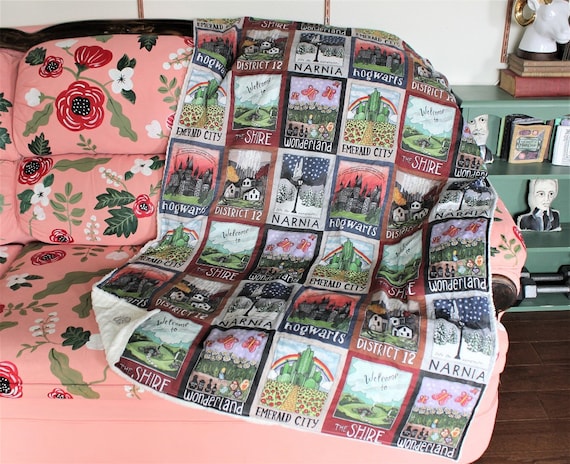Today finds me mostly crazy excited. Crazy excited. CRAZY
EXCITED. So excited it seems, that I am totally incapable of any kind of
coherent bloggage which…is a problem. (Is bloggage even a word? Nope, it is not.) There’s a reason though, and the reason
is Margaret Atwood. I love Margaret Atwood, I mean love.
I think she’s my favourite. And, she has a new book coming out in September. It
sounds marvellous too; a dystopia where lawful people are imprisoned and the
lawless roam free. Nobody does dystopia, or indeed words
like Margaret Atwood does and just the news of this book has sent me spiraling. I just, I cannot even. I am SO EXCITED FOR THIS.
It kind of makes choosing a book for Throwback Thursday this
week incredibly easy; naturally I’m going to go all Margaret Atwood.
I could
talk about The Blind Assassin because it’s my fave,
or I could talk about Handmaid’s or Oryx or The Year of the Flood,
but they get talked about a lot a lot; I could even talk about Alias Grace which is the first of hers I ever read so very
long ago, but I don’t wanna, basically.
I feel like spreading just a little bit of love for another
of Margaret Atwood’s books that I think is pretty freaking astounding: The Edible Woman. It kind of feels appropriate given news of
a new novel to talk about the first one. So, that's what I'm going to do, oh, and if you wondered, my copy looks like this:
Margaret Atwood is an amazing writer – I always find her
dystopian works eerily relevant even though they’re set in a future we haven’t reached
yet and in the same way The Edible Woman
whilst written in the 60’s is still just as relevant today as it ever was then.
Feminism is a buzz word right now, which is awesome, obviously, and yet at times
kind of puzzling. I see a lot of ‘if you think this or do this or don’t do this
then you’re really not a feminist, or at least not the right kind’ and an awful lot of instances where feminism has become synonymous with out and out man-hating (although don't get me started on #notallmen) and it all makes
my head hurt, because well because of reasons but
that is another post for another day, depending on if I decide that feminism
and its meaning to me and its many interpretations is a soap box I want to get
on. Basically though, when people ask me if I’m a feminist I tend to just think
about the definition:
And I say yes, yes I am. Why? Because I am human.
Like I said though, we’ll talk about that another day, for
now all you need to know is that I think feminism is incredibly important and I
think that this book does an incredible job in addressing it: it’s such a good
exploration of society and gender roles, you don’t even know. LET'S TALK ABOUT IT.
Ever since her engagement, the strangest thing has been happening to Marian McAlpin: she can’t eat. First meat. Then eggs, vegeatables, cake, pumpkin seeds – everything! Worse yet she has the crazy feeling that she’s being eaten. Marian ought to feel consumed with passion, but really she just feels…consumed.
So Marian’s just a girl, she’s recently left college has a
job and is dating The Perfect Man. Once they get engaged Marian begins to lost
sight of herself and starts to have difficulty eating; her relationship with
food is tied in directly with her feelings about her impending marriage, and
how the sort of forced dependence on Peter makes her feel. It’s pretty clever and so accurate it’s kind of scary. It resonated with me actually,
because my relationship with food has a direct correlation with my
relationships with the people close to me, and my state of mind. It’s true isn’t it: people do that, they deal
with situations they deem out of their control by controlling what they eat –
eating too much, or like Marian starving themselves even though Marian very obviously
takes this to it’s extremes. Does that make this an interesting study in eating
disorders too, then? Quite possibly, although I kind of feel like Atwood was
using Marian’s inability to eat as a metaphor more than a direct ‘she was
unhappy so she stopped eating’ but either way, it’s powerful writing.
Relationships can be transforming and that’s the story being
told here, one of them at least, and sure, some of it is
a little dated – women for example are less likely to be expected to become
homemakers now than they were in the 60’s; tell most women now that their place
is in the home and holy hell will rein down on you (as it should) but back
then, it was just The Way Things Were. People – Marian being the perfect
example – caved into societal expectations then much more than they do now and I
think it’s interesting how I was frustrated with Marian, how I wanted her to
exert some sense of self, some control over her own life, how I wanted her to
stop being a doormat and refuse to be moulded by Peter; because for me, the person
I am now wouldn’t make the choices Marian made; the society I live in now,
whilst so far from perfect is a hell of a lot
different to how it was then, when my Granny was my age (and my Granny if you
wondered, kicks ass. She’s the most feminist person I know and she rocks it.
Probably because she grew up in a world like The Edible
Woman and knew it was all kinds of messed up.) Marian did live in
that world though, and I guess that makes a lot of things make sense. I wonder,
actually, how the book was received when it was released…I suspect it had a bit
of an impact.
For an instant she felt them, their identities, almost their substance, pass over her head like a wave. At some time she would be — or no, already she was like that too; she was one of them, her body the same, identical, merged with that other flesh that choked the air in the flowered room with its sweet organic scent; she felt suffocated by this thick sargasso-sea of femininity
This is a short book, but it’s a slow one: it takes a while
to get going, which, well the loss of Marian’s identity wasn’t something that
happened the second Peter put the ring on her finger so it makes sense for the
story to take a while to get going, to make itself known and that right there
is another example of Atwood being the best at what she does; the way she tells
this story mirrors the story itself. Marian’s loss of identity is slow and not
immediately obvious, both to her and to the reader. There’s a lot of other
stuff going on, namely in the form of Marian’s two friends both telling totally
different tales which keep you just the right amount of distracted as they pull
Marian in opposing directions and you finish it, feeling both thrilled at the
resolution which is stunning (it’s
just a cake…’) and kind of like you just want to sit down and chat about the
whole thing because this book, it raises a lot of
questions and gives you a lot to mull
over and you kind of want to just grab hold of the first person you meet that’s
read it and say I thought these things HOW ABOUT YOU? It’s
a book that begs for discussion. It should be read in book clubs everywhere
(and maybe it is, I don’t even know.)
In addition to all of that stuff, this book is also super
duper great because Margaret Atwood knows how to do words. She just does. She does things with words that I don’t understand and
don’t know how to explain but that I really really love
and even here, in her first novel - that she wrote in her early freaking
twenties - that’s still so apparent. I’d hate her for it probably, if I didn’t love
her so damn much. & I could keep going, I could keep talking about this book
and why I liked it and what it said to me and how nobody does description like
Margaret Atwood and how also nobody forces you to really look
at the world like Margaret Atwood but my lunch break is over and I have to get
back to work.
Read it though, if you haven’t already. I promise it’s
excellent.






